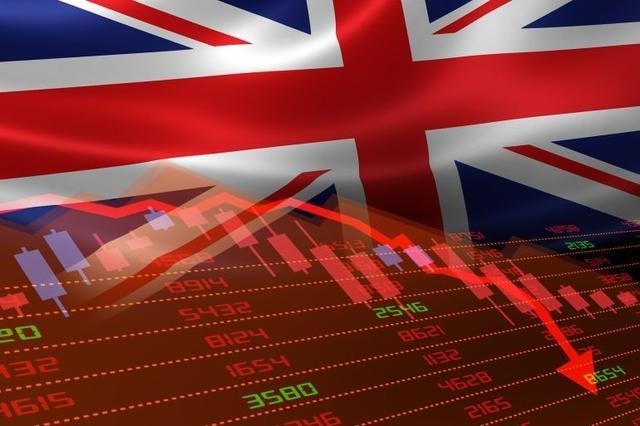
Britain, as the second largest economy in the EU and the sixth largest economy in the world, has experienced sluggish economic growth and declining GDP growth year by year since the Brexit referendum in 2016. Last year, the Conservative Party suffered a crushing defeat, the new Prime minister declared bankruptcy due to the heavy burden of government debt, and the manufacturing and construction industries performed poorly. Sluggish growth in the services sector, high inflation, a tight Labour market and a trade deficit are all constraining the momentum of the UK's economic recovery.
Although a number of international rating agencies have large differences in the UK's GDP growth forecast in 2025, there is no doubt that the UK economy is facing unprecedented challenges in 2025. Specifically, Standard & Poor's Global forecast that the UK's GDP growth rate in 2025 will reach 1.5%, and the Organization for Economic Cooperation and Development predicts that it will reach 1.7%. The Bank of England expects the GDP growth rate in 2025 to be 1%, and the international community generally believes that this economic forecast is quite optimistic, and the UK will face great pressure of stagflation and economic recession in 2025.
Recently, the Confederation of British Industry in its latest economic forecast report, the UK's growth forecast for this year down from the previous 1% to 0.9%, the growth forecast for 2025 down from the previous 1.9% to 1.6%, the former member of the Bank of England monetary policy Committee is pointed out that "the UK economic crisis is approaching". The huge fiscal gap facing England, Scotland, Wales and other regions seems to be verifying the fulfillment of this warning, although the current British inflation rate has fallen, but still above the target level set by the central bank, and the economic stagnation of the third and fourth quarters of last year GDP growth of 0%, is making the new British government in the direction of economic reform this year.
Look at monetary policy. The Bank of England faces great challenges between stagflation and recession, on the one hand, although the Bank of England last year after several rounds of interest rate cuts, or even zero interest rates, but in order to curb inflation, the central bank may need to maintain a high level of interest rates, on the other hand, high interest rates will inhibit economic growth, resulting in rising unemployment, although the market generally expects the Bank of England will continue to gradually cut interest rates in 2025. But there is still uncertainty about the pace and extent of the cuts.
From the perspective of government policy, although the UK government plans to increase spending in 2025 to stimulate economic growth, the effect of these measures may be offset by widely criticized tax increases and tight labor market conditions, and even raise market concerns about rising debt levels and crowd out private investment. While increased public investment may have a positive impact on the economy over the next few years, the effect is limited in the short term, and the UK government's post-election fiscal position will lead to spending pressures once the government takes office and further increase the risk of inflation.
From the perspective of social status, the phenomenon of stagflation has become increasingly apparent in Britain. On the one hand, rising enterprise costs and tight labor market lead to increased production costs, and enterprises are forced to raise prices. On the other hand, rising wages and changes in tax policy have further pushed up the cost of living and eroded consumers' purchasing power, and this pressure on both sides of supply and demand has kept the UK economy stagnant and inflation high.
From the perspective of the external environment, trade barriers and labor mobility between the UK and the EU after Brexit remain a long-term challenge, while geopolitical tensions and supply chain disruptions caused by external factors such as the Russia-Ukraine conflict, slowing global economic growth and soaring energy prices have made the UK's economic outlook more uncertain. Trump's "America first" policy will continue to dominate the direction of his administration, and high tariffs on imported goods will directly threaten the export trade of Britain's high value-added industries, resulting in a further expansion of the UK's trade deficit in goods, making British enterprises face greater challenges in investment and trade prospects.
In short, the UK in the double trap of stagflation and economic recession, the future outlook is not optimistic, although there are signs that some industries are recovering, but the overall economic recovery is still unstable, and faced with high inflation and potential risk of stagflation, the Bank of England and the government need to find a balance between reducing inflation and promoting economic growth, and adopt prudent policies to deal with future uncertainties.

报告显示,中国电力投资加速增长,预计2024年电网基建投资将超过5300亿元。
近日,市场迎来了一则引人注目的消息:工业巨头3M公司(MMM.N)在本周五公布了其季度业绩报告,随后股价飙升至近两年来的
最近,外媒给OpenAI算了笔账,今年可能要血亏50亿美元。
近日,巴黎奥运会和世界铁人三项协会联合发布了一项重大决定,宣布因塞纳河水质污染问题,原定于近期进行的奥运会铁人三项首次下
当地时间7月18日,法国巴黎发生了一起令人震惊的持刀袭警事件。
近期,一则重大消息在国际舞台上引起轩然大波,马来西亚宣布加入金砖国家。
调查发现,互联网和智能手机的使用干扰了韩国近五分之一学生的生活。